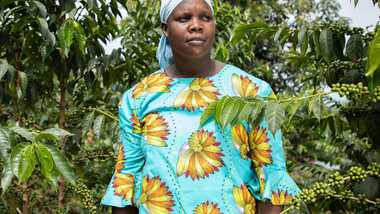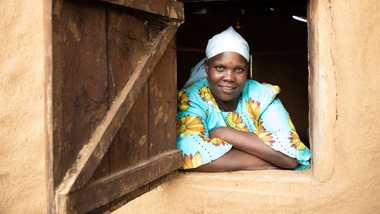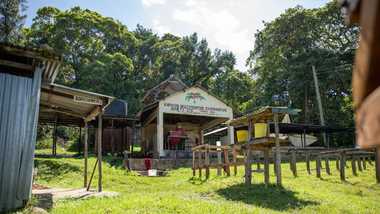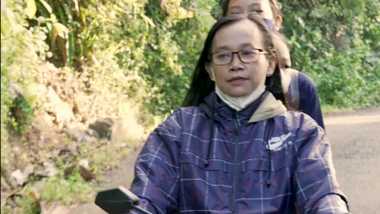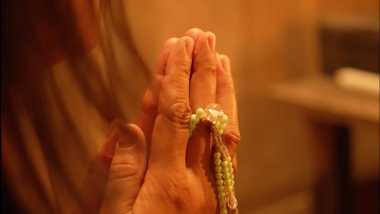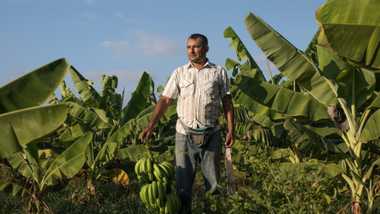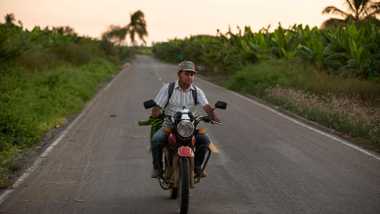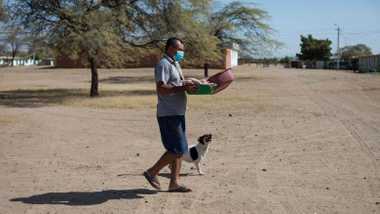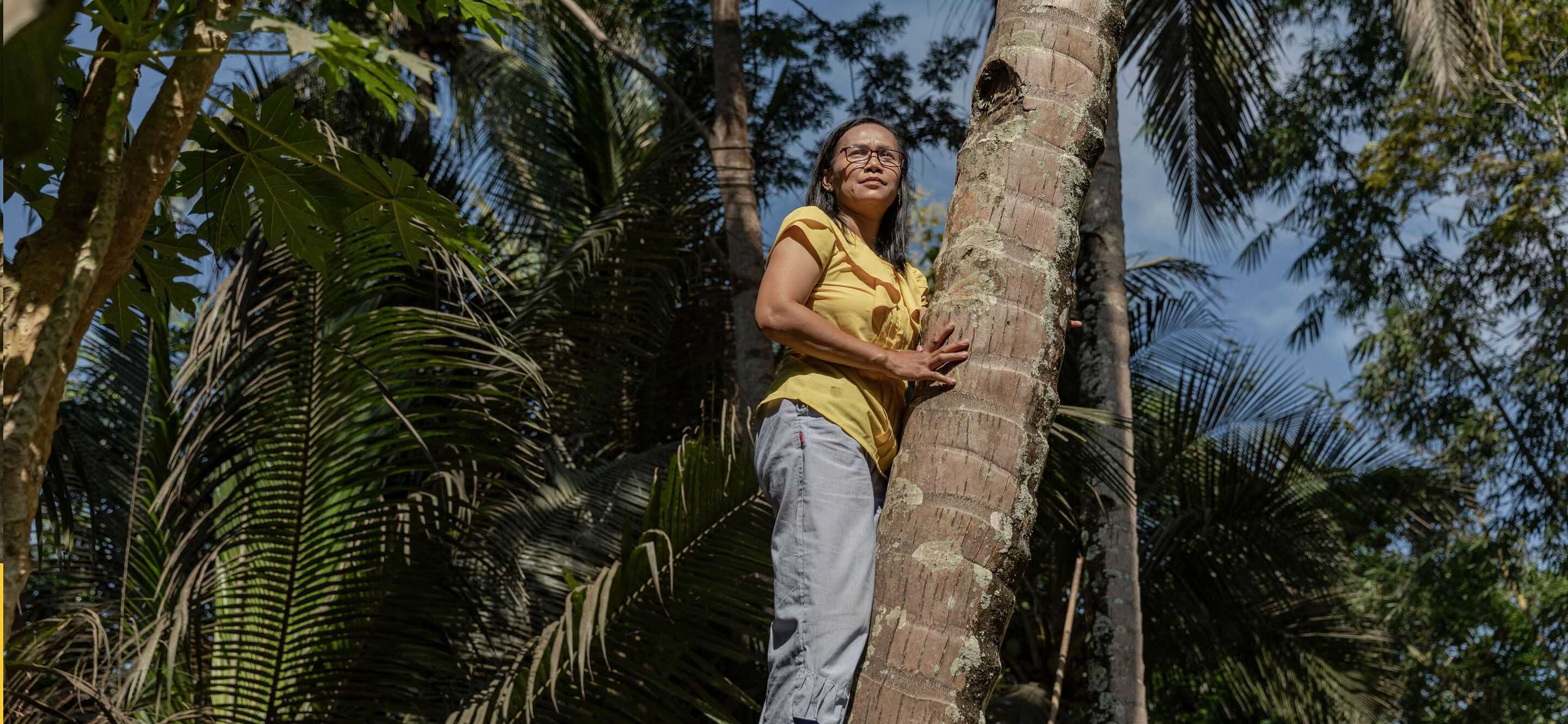
Ponisih

Since I was a kid, my family’s livelihood relied on coconut trees. These are my roots that I can’t leave behind.
Ponisih
Rooted to move forward
Ponisih is at the intersection of breaking traditions and keeping a legacy.
She proudly carries on with her ancestors’ business, working in a coconut sugar farm, yet she also goes further than the role typically assigned to women. Instead of of mostly cooking the sugar, as women in her community usually do, she actually climbs coconut trees of over 15 meters in order to sap them.
However, her aspiration of becoming a farmer had not always been there. When she was younger, she actually moved to a bigger city in Indonesia, where she met her husband. However, as years passed, they decided to go back to her village. A decision which she is even happier about during the Covid-19 crisis. Even though there are other challenges, her income as a coconut sugar farmer has not been as impacted as those of her friends living in the city, and they are all healthy.
Her kids will soon have to face similar decisions: city or village? Farmer or another profession? If current global trends stay, a new, large generation of farmers might not be in the horizon.
About KSP Karmatera
Koperasi Simpan Pinjam (KSP) Karya Manunggal Sejahtera (Karmatera) is the first Fairtrade certified coconut sugar small producers’ organization in Indonesia. The cooperative is situated in the beautiful hilly mountainous area of Hargorojo Village, in Purworejo. It has been Fairtrade certified since 2017 and has around 1,110 members. More than half of its members are women, who typically make the coconut sugar out of the coconut sap.
When it comes to Fairtrade premium and other investments, they are mainly used to improve infrastructure, providing production tools, kindergarten and childcare facilities, and even fostering new business development opportunities. For example, for cultivating organic fresh fruits.
In focus
The life of coconut sugar farmers
For Ponisih and her family, coconut trees are their livelihoods and heritage. With intense labour behind every sugar bag, their days start early in the morning to sap trees. The sap is then mixed with water and boiled into a syrup, allowing it to dry and crystallize. Afterwards, they break the dried sap apart to create sugar grains, as you would find at a store.
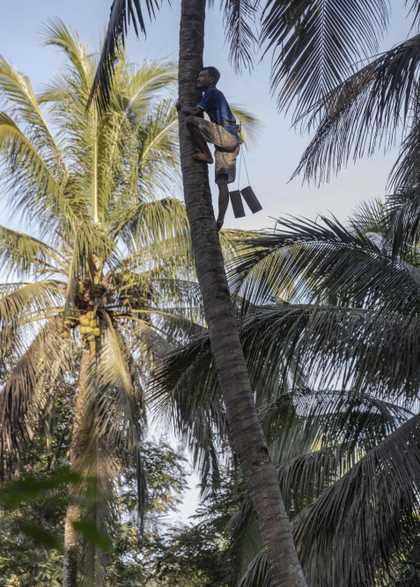
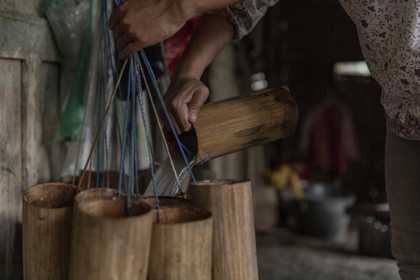
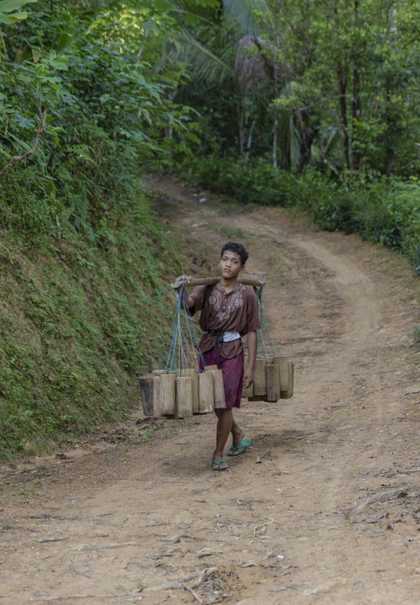
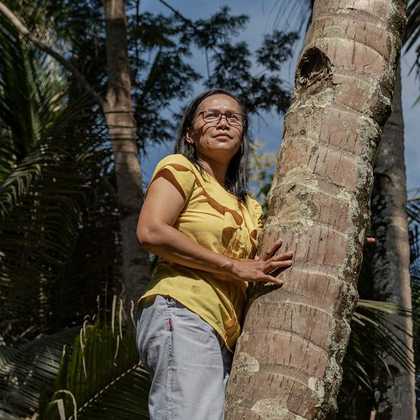
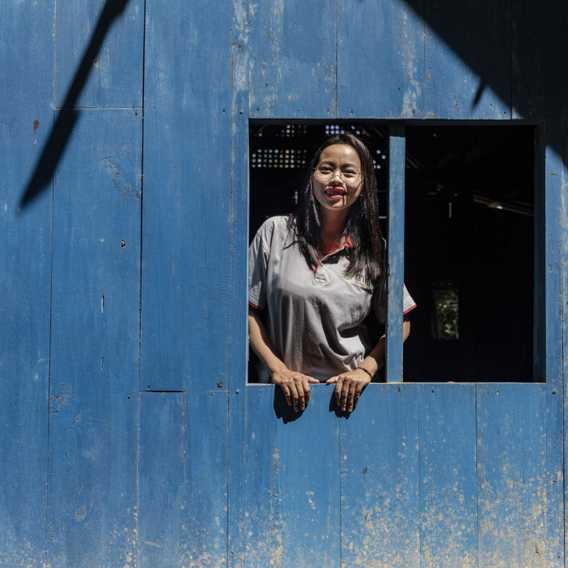
“Kids my generation don’t think it is cool to be a farmer” says Ika Irawati, committee member and treasurer of the cooperative. However, she sees a lot of potential in her village and for coconut sugar farmers in particular.
She runs cooperative meetings with the aim of opening up opportunities for women, including best practices on organic farming and processing. Her aspiration being that everyone keeps embraces modern, up to date practices for farming.
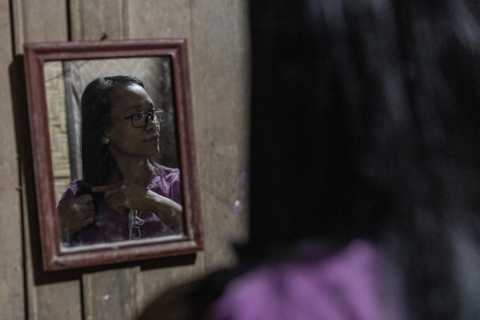
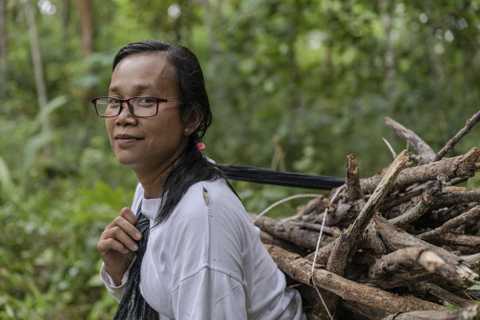
Photo Gallery
Meet the local film makers

Nyimas Laula
Nyimas Laula is an Indonesian photojournalist based in Jakarta and Bali, Indonesia. Her works focus on environmental and human rights issues across the country. She began her journey in 2015 and has since worked with Reuters, The New York Times, National Geographic, and VICE. Nyimas Laula is currently in Bali, Indonesia, and available for news, editorial, documentary, and commercial assignments in the country.

Rizky Rahad
Rizky Rahad is an independent director, producer, and fixer based in Jakarta, Indonesia. His work seeks to reimagine Indonesia’s hetero-patriarchal narrative through intimate collaborations with the fringes of society, from a Javanese dance troupe reviving an ancient drag tradition to Timorese women tattooing themselves to survive sexual slavery. Rizky joined VICE as a senior producer in 2016.
Info
Supporting Farmers in Indonesia
In Indonesia immediate relief measures were critical in order to mitigate the impact of Covid-19. At the same time, several initiatives have been put in place to improve the resilience of farmers in the long term.
At Fairtrade we established two funds in 2020 in order to support producers better navigate the pandemic. To date, more than 18 producer organizations in Indonesia have made use of them for a variety of measures, impacting thousands of farmers. They have focused particularly on how to improve infrastructure and production.
For more information about Fairtrade and Covid-19 activities, please visit the dedicated webpage.




